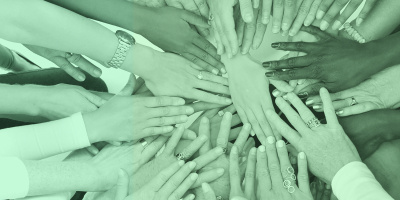Indigenous Peoples Day falls on June 21, the summer solstice and longest day of the year, a day of great spiritual importance in numerous Indigenous traditions. On this day, AUPE members celebrate and honour the history, heritage, cultures, and achievements of First Nations, Inuit, and Métis peoples.
AUPE’s Human Rights committee encourages AUPE members and all Albertans to join the many celebrations across the province.
Indigenous Peoples Day is also a day for solidarity, both as an occasion for unity as well as a day for the labour movement to pledge its support for meaningful reconciliation.
“Truth and reconciliation is a journey we all must take, a challenge we must all face. This includes AUPE members from the shop floor to the provincial executive, as well as the entire labour movement. We must do more—the struggle for truth and reconciliation is a struggle for the rights of all.”
Walking the path of reconciliation
Celebrating Indigenous Peoples Day is important, but walking the path of reconciliation is the critical work we must do. As western Canada’s largest union, AUPE members know we must collectively address and put an end to the systemic injustice, racism, and colonialism inherent to our workplaces.
When the federal government created the National Day for Truth and Reconciliation, AUPE saw this statutory holiday as an opportunity to educate employers and recognize Indigenous culture and history. We immediately worked to have the holiday included in our collective agreements, just as many other important holidays.
“However, several employers refused to recognize the holiday,” says AUPE Vice-President Bobby-Joe Borodey. "But then we called them out in the media and at our worksites. In the end, we successfully negotiated the holiday into a majority of our collective agreements.”
Creating the statutory holiday was a direct recommendation from the Truth and Reconciliation Commission, and as such it is a serious, sombre day to reflect on the dark legacy and ongoing impacts of residential schools and colonization. AUPE members know the importance of the National Day for Truth and Reconciliation, and we will continue using our collective power to fight for justice.
The Human Rights committee is also creating a new Land Acknowledgement. This updated acknowledgement is meant to better respect the unique history, languages, traditions, and cultures of the Indigenous people who call this land home. The committee will present the new Treaty Land Acknowledgement at the Provincial Executive meeting this September, where Borodey hopes it will be adopted into AUPE policy.
“Truth and reconciliation is a journey we all must take, a challenge we must all face,” says Borodey. “This includes AUPE members from the shop floor to the provincial executive, as well as the entire labour movement. We must do more—the struggle for truth and reconciliation is a struggle for the rights of all.”
Borodey encourages all members and components to observe Indigenous Peoples Day as well as the National Day for Truth and Reconciliation, and to create a meaningful, thoughtful process when preparing land acknowledgements for our union meetings and events.
“I am so encouraged to see many Locals creating Inclusion, Diversity and Equity committees,” she says. “This work is invaluable and will help AUPE members across the province."

Mark your calendar: National Day for Truth and Reconciliation Event at AUPE headquarters
AUPE will host a flag raising ceremony at Edmonton Headquarters on Saturday, Sept. 30, the National Day for Truth and Reconciliation. Elders and dignitaries will lead the event, including a smudging ceremony.
Several speakers, dancers, drummers, and art vendors will honour us at the event by sharing their talents and culture. An Indigenous art installation will also be on display on the first floor of the AUPE building. The Human Rights committee will share more information about the event as it approaches.
To learn more about Indigenous Peoples Day, reach out to the Alberta Native Friendship Centres Association (ANFCA).
Or try this app! The Reconciliation: A Starting Point mobile app is a reference tool for learning about First Nations, Inuit, and Métis peoples, including key historical events and examples of reconciliation initiatives.
Download the mobile app here.


